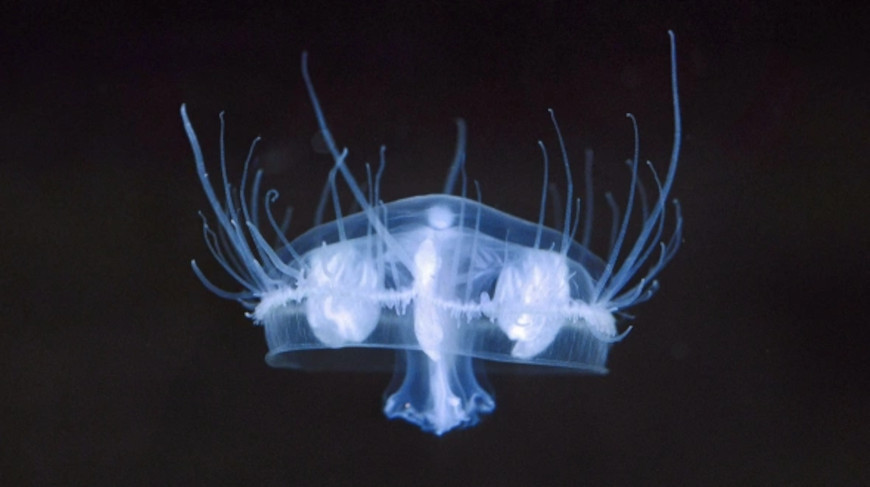
MINSK, 14 August (BelTA) – Candidate of Biological Sciences Tatiana Lipinskaya, leading researcher of the hydrobiology laboratory of the Center for Bioresources at the National Academy of Sciences of Belarus, explained reasons how jellyfish made their way into Belarus and whether they are dangerous for the local ecosystem in an interview with BelTA.
Recently, a video of jellyfish spotted in the Western Dvina River went viral on the internet. "This is not the first time when jellyfish has been spotted in our country. Last year people sent us similar videos from the Western Dvina," Tatiana Lipinskaya said.
According to her, Belarusian scientists first found jellyfish in the spring of 2018 using molecular methods. They identified jellyfish DNA in the Neman, Pripyat and Dnieper rivers. Then local residents reported rapid growth of jellyfish.
"First, we found them in the Brest rowing canal. In summer, when the water warms over 25°C, jellyfish begin to multiply. When there's a lot of them, they come to the surface," Tatiana Lipinskaya added.
Jellyfish is an invasive species for Belarus. As the scientist explained, most likely jellyfish got into the Belarusian wildlife with aquarium plants or animals. However, jellyfish have been widespread in Europe for a long time. There is evidence that they can be carried on bird feathers.
"Jellyfish can cause allergic reactions, especially when there are a lot of them," Tatiana Lipinskaya said.
The scientist warned against releasing exotic species from aquariums. "They should be kept at home and not released into rivers or ponds or flushed down toilets. At first glance it seems that exotic species will not survive, but they adapt very well in a warming climate, and then cause damage to our native species and ecosystems," the researcher summarized.













